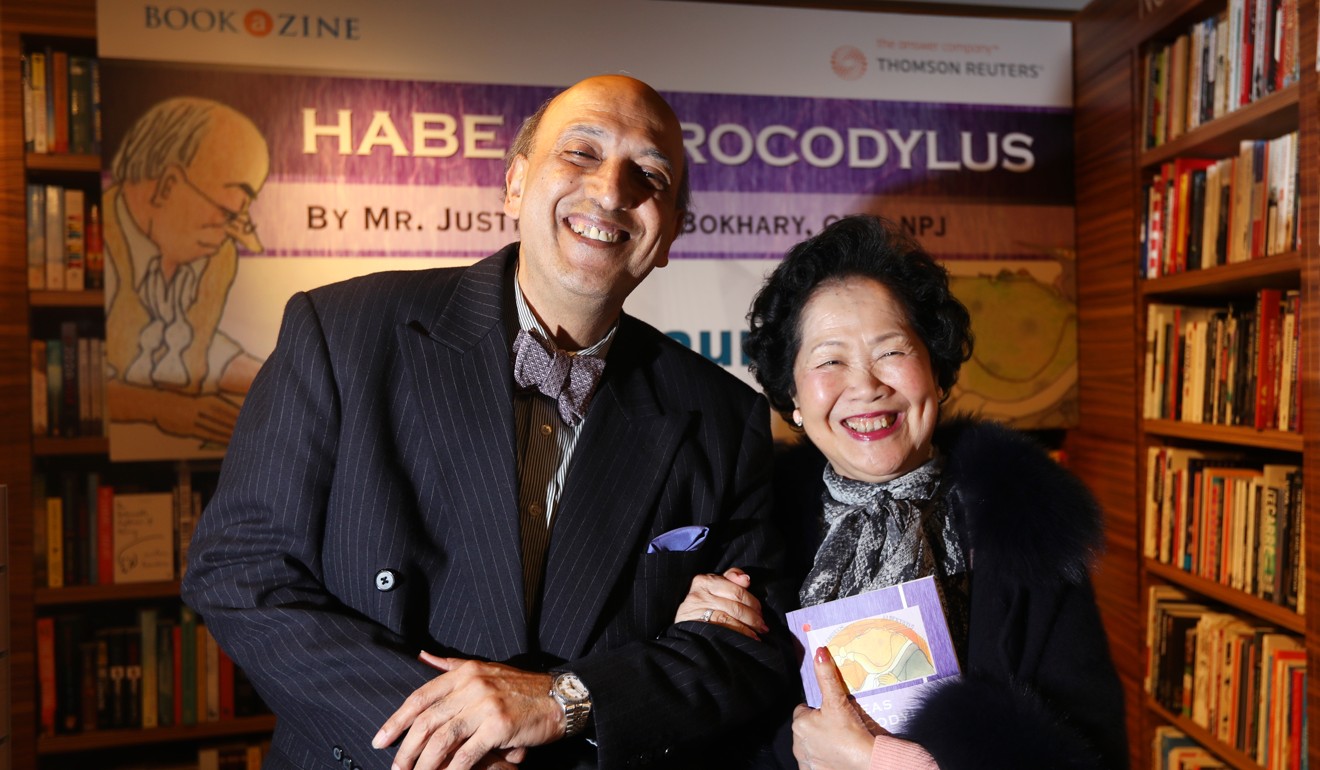
Hong Kong courts independent despite Beijing’s power to interpret Basic Law, top judge Kemal Bokhary says
- Liberal justice says judges will always decide cases according to the law and in an open manner
- Vocal critic of ‘democratic deficit’ also urges public not to give way to despair over stalling of electoral reform
Beijing’s interpretation of the city’s mini-constitution might affect the judicial autonomy of local courts, but Hong Kong judges would always independently apply the law, top judge Kemal Bokhary said on Wednesday.
Speaking after a book launch on Wednesday, Bokhary said Beijing’s power to interpret the Basic Law was a problem for the “one country, two systems” principle, under which China governs Hong Kong. He called this power a “work in progress”, hinting that the exercise of that authority needed to be better clarified.
But he offered the public his assurance when asked about the perceived pressure from the central government on local courts.
“The very fact that there’s an interpretation [from Beijing] shows you that the court is independent,” Bokhary said.
“Because if the courts are not independent, then they could just be told quietly behind the scenes what to do, and they would do it. But everybody knows that’s not how it works in Hong Kong.”
Since the city’s handover to China in July 1997, the National People’s Congress Standing Committee has issued five binding interpretations of Hong Kong’s Basic Law. Only one of these cases was referred by Hong Kong’s top court to the NPCSC, the country’s top legislative body.

The latest case was in 2016 over an oath-taking requirement for major officials and legislators. The NPCSC ruling effectively led to the disqualification of nearly a dozen lawmakers and candidates.
Bokhary joked that he too read the newspaper and was aware of the public’s anxiety when the courts were asked to handle cases with a political dimension or involving the central government’s authority.
While some cases had proven to be more controversial than others, he stressed that the courts would always decide according to the law and in an open manner.

“I can’t convince anybody who won’t believe in judges’ independence, but I assure you the judges are independent,” he said.
Bokhary is seen by members of the legal profession as a respected liberal judge, particularly known for his dissenting or concurrent judgments.
In recent years, he has been vocal about a “democratic deficit” in Hong Kong, referring to how the city has not achieved universal suffrage. He has previously warned that the rule of law could not exist without democracy. Last month, he also renewed his call for an “urgent restart” of democratic development.
When asked about the political deadlock that arose when it came to any electoral reform, the top judge said he too had no solution.
“Who knows? If you look at some of the problems we face, I’m not exactly sure how we can get out of it, the difficulty,” Bokhary said. “But Hong Kong has faced many many problems in the past that we weren’t sure how to get out of, [and] we still got out of it. So let’s do our best.
“The important thing is, when things look a bit bad or even very bad, you mustn’t give way to despair, and if things look good, you mustn’t be complacent.”

